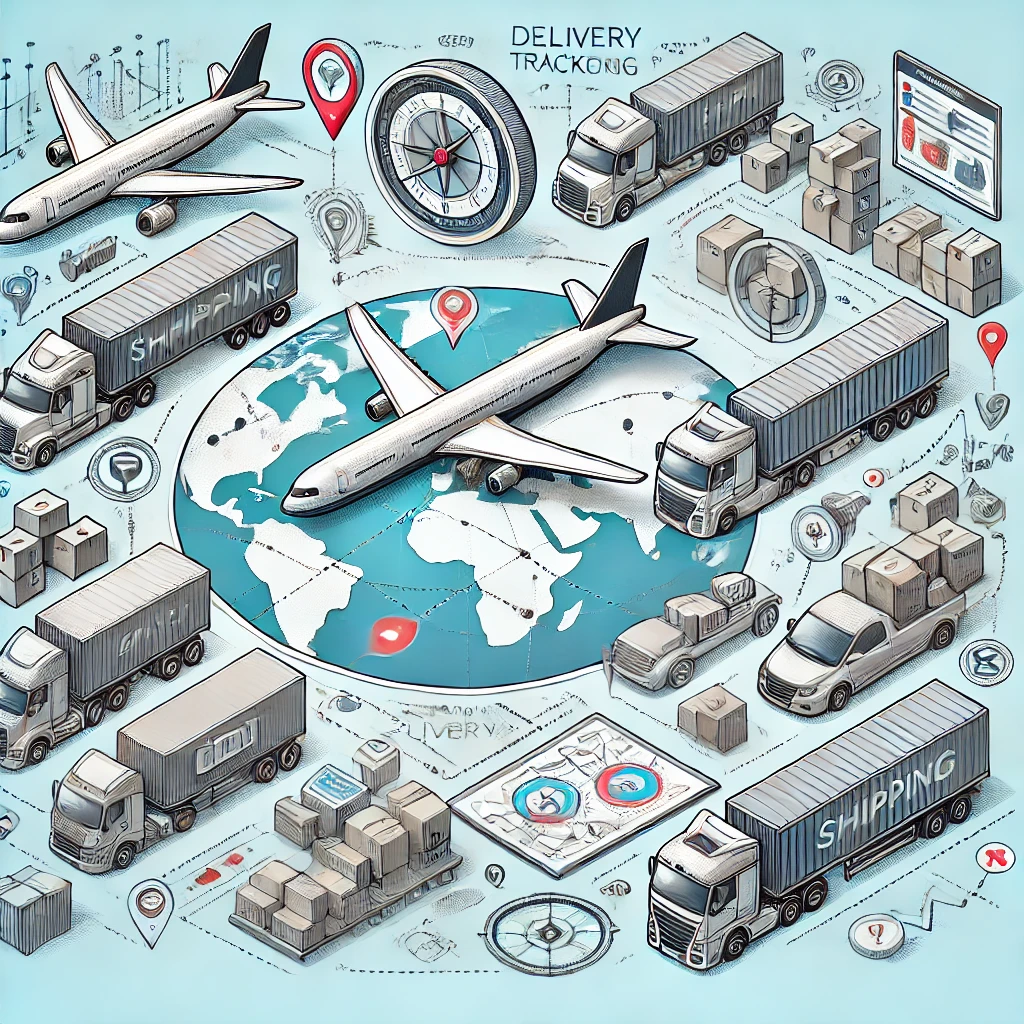The Ultimate Guide to Shipping Carriers: Everything You Need to Know in 2024

What is a Shipping Carrier?
A shipping carrier, also known as a shipping provider or delivery carrier, is a company that transports packages, freight, or cargo from one location to another. These companies play a vital role in the supply chain, ensuring that goods reach their intended destinations efficiently and safely.
Key Points:
- Shipping carriers handle the physical transportation of goods
- They operate on local, national, and international levels
- Examples include USPS, UPS, FedEx, and DHL
Types of Shipping Carriers
Understanding the different types of shipping carriers is essential for choosing the right partner for your business needs. There are four main types:
- Common Carriers
- Operate on regular routes at set rates
- Available to the general public
- Examples: USPS, UPS, FedEx
- Private Carriers
- Use their own fleet to deliver goods
- Typically owned and operated by large companies for their exclusive use
- Example: Amazon’s delivery fleet
- Contract Carriers
- Provide transportation under specific agreements
- Work with a limited number of clients
- Often specialized in certain types of goods or routes
- Exempt Carriers
- Specialize in transporting specific, exempted commodities
- Not subject to the same regulations as other carriers
- Examples: Agricultural products, newspapers
How to Choose the Right Shipping Carrier

Selecting the best shipping carrier for your business involves considering several factors:
1. Location and Coverage
- Assess where you’re shipping to (local, national, international)
- Consider the carrier’s network and reach
2. Cost
- Compare rates for different service levels
- Look for volume discounts or negotiated rates
3. Speed and Delivery Times
- Evaluate standard delivery times
- Check availability of expedited shipping options
4. Tracking and Technology
- Look for real-time tracking capabilities
- Assess integration options with your e-commerce platform
5. Reliability and Reputation
- Research customer reviews and satisfaction rates
- Check on-time delivery performance
6. Special Services
- Consider needs for insurance, signature confirmation, or special handling
- Look for options like Saturday delivery or residential delivery
7. Sustainability Practices
- Evaluate the carrier’s environmental initiatives
- Consider carbon-neutral shipping options
Popular Shipping Carriers Compared
Let’s take a closer look at some of the most popular shipping carriers:
Carrier | Strengths | Best For |
USPS | Affordable domestic shipping, extensive reach | Small businesses, lightweight packages |
UPS | Reliable tracking, global reach | B2B shipments, heavier packages |
FedEx | Fast delivery, excellent for urgent shipments | Time-sensitive deliveries, international shipping |
DHL | Strong international presence | Global e-commerce businesses |

The Role of Shipping Carriers in Supply Chain Management
Shipping carriers are a crucial link in the supply chain, impacting:
- Inventory management
- Order fulfillment
- Customer satisfaction
- Cost control
Effective collaboration with carriers can lead to:
- Reduced transit times
- Lower shipping costs
- Improved delivery accuracy
- Enhanced customer experience
Technology and the Future of Shipping Carriers
The shipping industry is continuously evolving, with technology playing a significant role:
- AI and Machine Learning: Optimizing routes and predicting delivery times
- Blockchain: Enhancing transparency and traceability
- Internet of Things (IoT): Improving real-time tracking and condition monitoring
- Autonomous Vehicles: Potential for self-driving delivery vehicles
- Drone Delivery: Exploring new methods for last-mile delivery

Tips for Working Effectively with Shipping Carriers
- Negotiate Rates: Don’t be afraid to ask for better pricing, especially if you ship in volume.
- Use Multiple Carriers: Diversify to optimize for different types of shipments.
- Leverage Technology: Utilize shipping software to compare rates and streamline processes.
- Understand Carrier Policies: Be aware of restrictions, insurance options, and claims procedures.
- Maintain Good Relationships: Regular communication can lead to better service and problem resolution.

Common Shipping Carrier Terms
Understanding industry terminology can help you navigate the world of shipping more effectively:
- Bill of Lading (BOL): A legal document that serves as a receipt and contract between the shipper and carrier.
- Freight Forwarder: A company that organizes shipments for individuals or corporations.
- Last Mile Delivery: The final step of the delivery process from the distribution center to the end consumer.
- Dimensional Weight: A pricing technique used by carriers that takes into account package size as well as weight.
- Carrier Liability: The extent to which a carrier is responsible for loss or damage to a shipment.
Conclusion: Making the Right Choice for Your Business
Choosing the right shipping carrier is a critical decision that can significantly impact your business operations and customer satisfaction. By understanding the types of carriers, evaluating your specific needs, and staying informed about industry trends, you can make an informed decision that benefits both your business and your customers.
Remember, the best carrier for your business may change as your company grows and evolves. Regularly reassess your shipping needs and carrier performance to ensure you’re always getting the best service at the most competitive rates.
By leveraging the information in this guide, you’ll be well-equipped to navigate the complex world of shipping carriers and make decisions that drive your business forward in 2024 and beyond.
